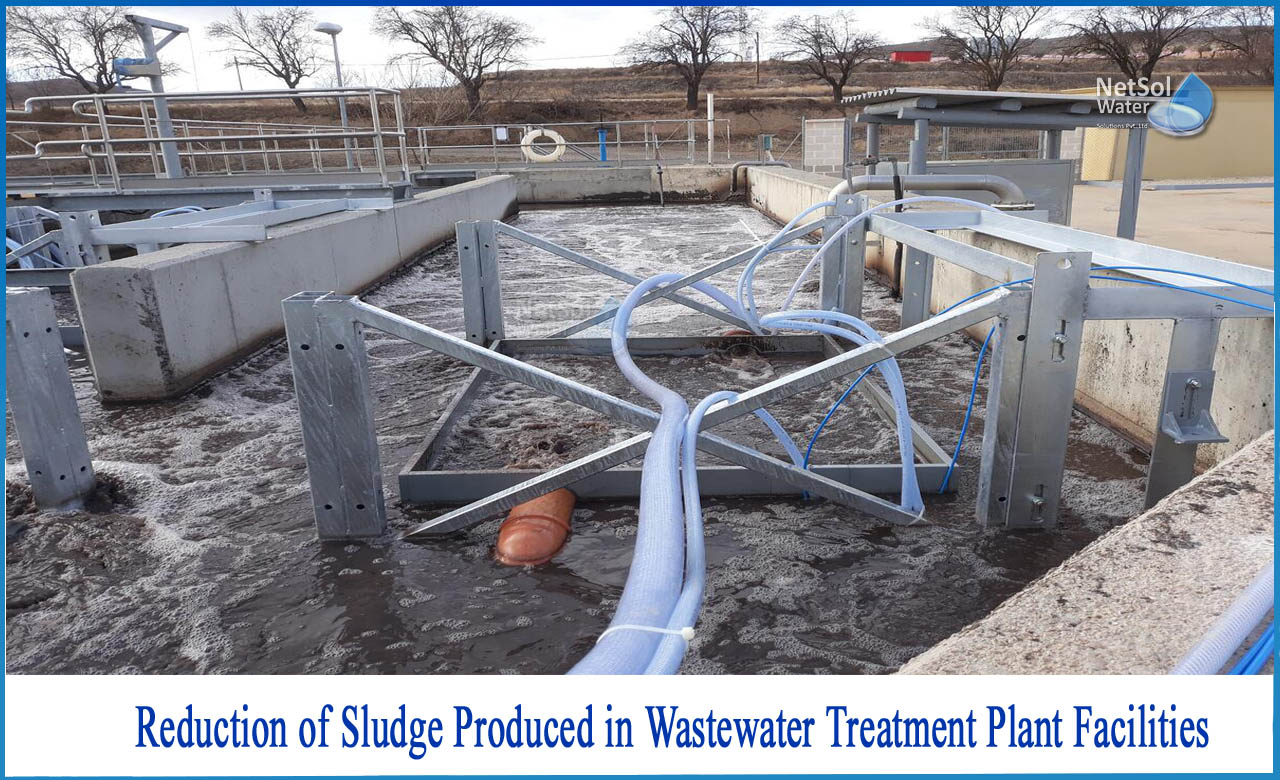How to Reduce of Sludge produced in WWTP facilities?
The volume of sludge generated in a WWTP is only approximately 1% of the volume of influent wastewater to be treated (dewatered sludge is 0.5).
To manage WWTPs properly and efficiently, waste sludge, comprising inert materials and surplus biomass, must be extracted in order to prevent their accumulating inside the system.
Sludge Reduction Techniques and Principles
In addition to cell biomass, a high quantity of non-biodegradable (inert) particles in particulate form inbound with the influent raw wastewater and add considerably to sludge development during biological wastewater treatment.Inert organic solids in sludge are present owing to their existence in influent wastewater (e.g., hairs, fibres, etc.), endogenous residue created in microbial decomposition, or protozoan activity, which may not totally destroy the bacterial cell walls, leaving behind inert material. As a result, knowing the composition of sludge is critical for our understanding.
When it comes to sludge, there are two goals:
• If sludge is regarded as a resource, the recovery of materials or energy from it;
• The reduction of sludge production, if sludge is considered waste.
For many industries, the economic benefits of beneficial sludge reuse are insufficient to make it an appealing investment. Despite the fact that a sludge-zero process remains a pipe dream in sludge management, a more practical and achievable practice is to continue to minimize the volume and amount of sludge generated.
Sludge Reduction Techniques
The following are the numerous mechanisms used in sludge reduction:
1. Predation by microorganisms
Bacteria are a source of food for higher species like protozoa and metazoa. When one creature consumes another, the overall quantity of biomass reduces, and the organisms move up the food chain to a higher trophic level. As a result, some of the biomass and potential energy are lost as heat and excretory wastes, resulting in slower biomass growth and decreased sludge output.
2. Hydrothermal oxidation
Once created, the sludge can be subjected to hydrothermal oxidation techniques to minimize the quantity that must be disposed of. The mineralisation of sludge using oxygen can be accomplished at high temperatures (>850°C) in the gaseous phase (incineration) or at comparatively low temperatures (150-320°C or >374°C) in the liquid phase: water (subcritical or supercritical) is employed as a reaction medium.
There are two hydrothermal oxidation methods available:
(1) Subcritical water oxidation, which includes wet air oxidation;
(2) Oxidation of supercritical water.
3. Increased biodegradability in inert solids
Another process, relating to increased biodegradability of inert materials, can be explored, albeit it cannot be regarded an independent mechanism because it occurs in conjunction with other mechanisms. Ozonation, for example, is projected to be a powerful oxidant on all sludge components, whether cellular biomass or inert chemicals. This treatment produces cell lysis-cryptic growth in cellular biomass; however, it has an impact on inert materials by increasing solubilisation and perhaps increasing the biodegradability of the chemicals liberated.
4. Endogenous metabolic process
The idea of endogenous metabolism reflects the findings that when the external substrate is entirely depleted, stored molecules are utilised for maintenance. Endogenous metabolism, in other words, should be described as a situation in which no net growth is conceivable yet cells use energy to remain alive. Increased energy requirements for non-growth activities, particularly maintenance functions, reduces the amount of energy available for biomass growth. As a result, a large reduction in sludge generation can be obtained by increasing the amount of energy utilized for maintenance rather than cellular synthesis.
Netsol Water is Greater Noida-based leading water & wastewater treatment plant manufacturer. We are industry's most demanding company based on client review and work quality. We are known as best commercial RO plant manufacturers, industrial RO plant manufacturer, sewage treatment plant manufacturer, Water Softener Plant Manufacturers and effluent treatment plant manufacturers. Apart from this 24x7 customer support is our USP. Call on +91-9650608473, or write us at enquiry@netsolwater.com for any support, inquiry or product-purchase related query.



